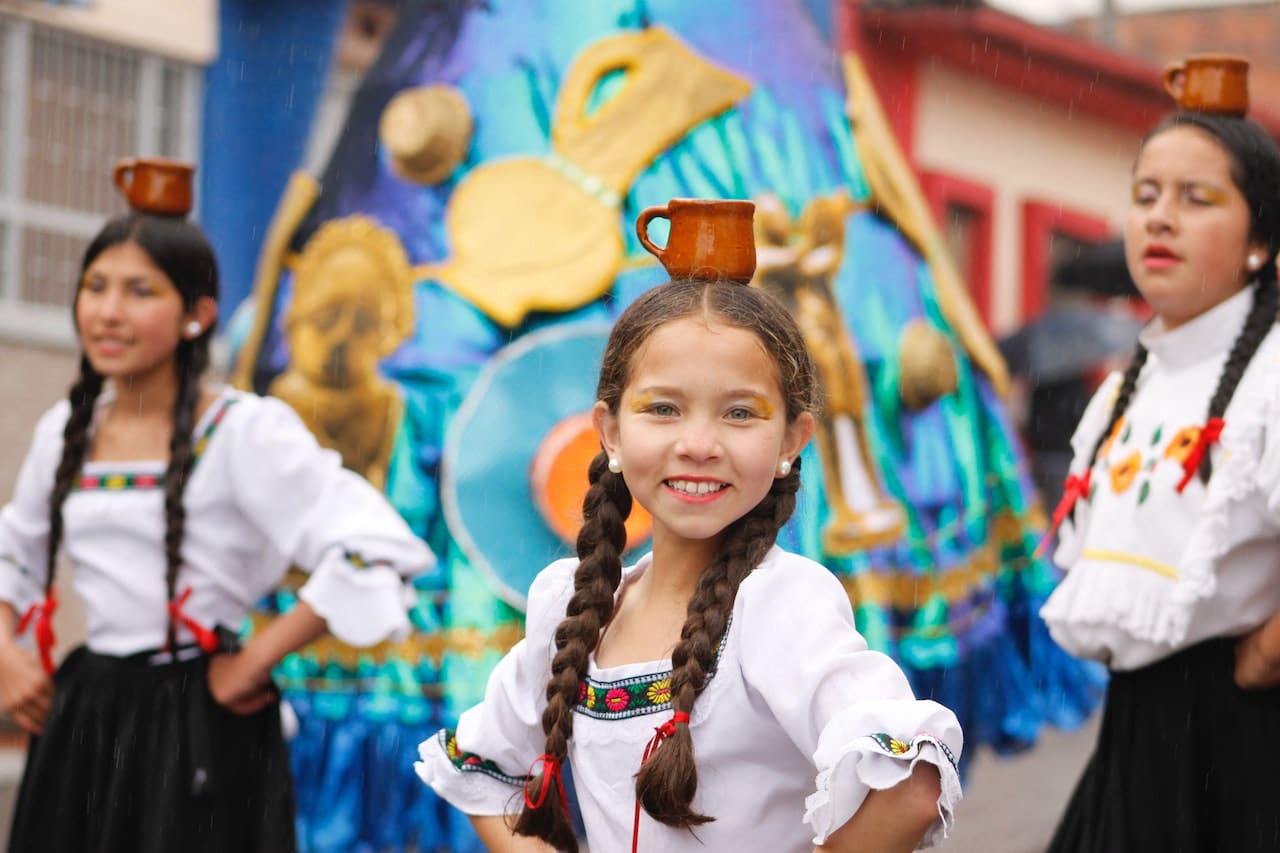
Master the Art of Saying Cool in Spanish (Vocabulary)
DATE:
The word “cool” can have several meanings in English, such as “cold” or “fresh”, or it can also mean “great” or “nice”. It is precisely the second definition that we want to pay attention to today, in case you don’t know when it is translated into Spanish you can find dozens of words that you can use that mean the same thing.
In this article, we’ll focus on exploring the many ways to express “cool” in Spanish, as it takes on numerous forms depending on the region, be it Latin America or Spain.
Get ready to dive into a world of linguistic flavor as we unveil the various shades of “cool” in the Spanish-speaking world. So, whether you’re a language enthusiast or just looking to add some zest to your conversational skills, join us on this exciting journey to discover how to say “cool” in Spanish like a true local!
Common words to say “Cool” in Spanish words
There are many words in Spanish to which you can add the definition of “cool” and that is usually said by all Spanish-speaking countries to a greater or lesser extent and that can be used to use a neutral language. Some of these words that mean “cool” are: genial, excelente, maravilloso, increíble, fantástico, estupendo, bueno, magnífico, or fabuloso. Each also has its meaning and can be used in different contexts:
- Genial – Great
- Excelente – Excelente
- Maravilloso – Wonderful
- Increíble – Incredible
- Fantástico – Fantastic
- Estupendo – Stunning
- Bueno – Good
- Magnífico – Magnificent
- Fabuloso – Fabulous
DID YOU KNOW…?
People from some Spanish-speaking countries also often say the word “cool” in their conversations. In this way, this word has become an Anglicism used in the Spanish language: “Esa camisa está muy cool” (That shirt is very cool).
How do Colombian people say cool?
Colombia is one of the most diverse countries in the region in the same way as Mexico, which means they have a variety of ways of communicating in Spanish, with different words and phrases depending on the region.
Colombia has many states known as departments. Each of them has its own Spanish slang words, though over time, and due to Colombians mixing, traveling, and living in other regions for work or study, people have adopted words and expressions that are not typical of their region.
As for “cool” to refer to something being good, Colombia is a privileged country, because you can find many ways to express it.

In each department, the Colombian slang words for cool can be said differently. Here is a list of these words and the region where they are usually spoken.
|
Region/State |
Word |
|---|---|
|
Bogotá / Cundinamarca |
Al peluche |
|
Medellín / Antioquia |
Chimba* |
|
Santanderes |
Poporro |
|
Región caribe |
Chévere* |
|
Eje cafetero |
Bacano* |
|
Otras regiones |
Bacán |
** Words that due to their popularity are used practically throughout the territory of Colombia
Some words that have gender agreement
Some of the words that adopt the meaning of “cool” in Spanish have gender agreement since they are adjectives that describe a feminine or masculine object or situation. The list of common words with gender is: maravilloso, fantástico, estupendo, bueno, fabuloso, magnífico.
If you look closely, all these words end in “o”, which means that they are behaving like a masculine adjective. To write the feminine version of each word, the “o” would be changed to an “a”.
This is how these words would look in feminine: maravillosa, fantástica, estupenda, buena, fabulosa, magnífica.
QUICK NOTE…
Region-specific words don’t always mean the same thing depending on the context, and in some situations, this can even refer to something negative or rude, so it’s necessary to take into account the context in which a conversation occurs with these words.
To facilitate your understanding, we are going to give you some examples of sentences where these words are often used, and sentences where adjectives that have no gender are used (great, excellent, incredible, cool).
Examples of sentences with masculine and feminine adjectives:
- Esta silla es fantástica (This chair is fantastic) – The subject “silla” (chair) is feminine, so a feminine adjective (fantástica) is added to the sentence.
- Mamá, este televisor fabuloso (Mom, this TV is fabulous) – The subject “televisor” (TV) is masculine, so a masculine adjective (fabuloso) is added to the sentence.
- Hemos tenido una noche magnífica (We’ve had a magnificent night) – The subject “noche” (night) is feminine, so a feminine adjective (magnífica) is added to the sentence.
- Gracias por esta maravillosa cena, cielo (Thank you for this wonderful dinner, darling) – The subject “cena” (dinner) is feminine, so a feminine adjective (maravillosa) is added to the sentence.
Examples of sentences where adjectives with gender are not used:
- Esta es una excelente oportunidad para ti (This is an excellent opportunity for you) – Although the word “oportunidad” (opportunity) is feminine, the word “Excelente” remains neutral.
- El sueño que tuve anoche estuvo increíble (The dream I had last night was incredible) – Although the word “sueño” (dream) is masculine, the word “increíble” remains neutral.
How do Argentinian people say cool in Spanish?
Argentines not only have a particular way of speaking that, together with Uruguayans, differentiates them from most accents in Latin America, Spain, and the world.
But there are also many words used within their vocabulary, which if they were all mentioned in a conversation you would never notice that they are talking in Spanish.
Thanks to European immigration in the last century, mainly Italian, many of the words from this European country have been used and adapted to the Spanish slang words spoken in Argentina.
For example, the expression “to work”, which in Spanish is “trabajar”, is replaced by “laburar”, a word that originates from the Italian expression “lavoraré” and these words mean the same thing.

“Cool” is another expression widely used in Argentina, and it has some synonyms typical of this country, and its wealth of different languages as a result of immigration.
Two words are widely used in Argentina to refer to something cool, these are:
1. Piola
This word is used to describe a clever or cunning person, but it can also refer to “cool” depending on the context.
“¡Tienes una amiga muy piola!” – You have a very nice friend.
2. Copado
Generally, it is used to talk about something attractive, charming, or that is very interesting.
Know some of the phrases in which they are used:
“¡Este juego es muy copado!” – This game is very cool.
DID YOU KNOW…?
There are at least two words specific to each country that can be synonymous with “cool”.
How do Mexican people say cool in Spanish?
Mexicans have their own words to express how cool, great, awesome, fantastic, good, nice, incredible, or wonderful something is.
Besides, as the country with the most native Spanish speakers in the world, Mexican Spanish influence on other countries is visible not only in its customs or food but also in the way of speaking. Even in Colombia, for example, a portion of the younger population is beginning to use Mexican slang and idioms.

Although there are not many words from Mexico that mean cool, they are well known, such as the following:
1. Chido
It’s the most used Mexican slang by Mexicans to refer to something great or interesting.
¡Qué chido, wey! – So cool, dude
2. Está cabrón
The word “cabrón” by itself does not usually have a positive meaning, so the expression “He is a bastard” is the most advisable to guess that a Mexican is admiring something. (Later you will know why it is necessary to be careful to understand and especially to use this expression in Mexico)
¡Este equipo está cabrón! – This team is hard.
3. Padre
Although the main translation of this word is “father”, in Mexico it is used to saying that something is great.
¡Que padre que conozcas a mi mejor amiga! – It’s so nice that you know my best friend!
Another famous Mexican phrase is “¡Está de poca madre!” or “¡Qué poca madre!”
All these words mean cool
|
Country |
English |
Example |
|---|---|---|
|
Chile |
Bacán |
Eres un bacán weon – You are very cool dude |
|
Spain / España |
Guay |
Qué guay esta serie – What a great tv series |
|
Costa Rica |
Pichudo |
Es un trabajo pichudo – It is a cool job |
|
Perú |
Bacano |
Qué bacano es Peru – How cool is Peru |
|
Costa Rica |
Pura vida |
Esta selección es pura vida – This national team is pure life |
|
El Salvador |
Chivo |
Ella es muy chiva – She is very cool |
|
Venezuela |
Chévere |
Qué canción tan chévere – Such a very nice song |
|
Puerto Rico |
Chévere |
Qué chévere se habla aquí – Here is great talk |
|
Perú |
Chévere |
El concierto está chévere – The concert is nice |
DID YOU KNOW…?
Although in Spain it is possible that a good part of the population understands the word “chévere” or others, it is not used at all, since “guay” is the one that represents the expression “cool” in Castilian Spanish.
Be careful when mentioning some words
You already know many expressions in Spanish to say “cool”, however, it is necessary to take into account that some of them can have a different meaning.
For this reason, we will explain the words whose meaning changes and what is the context in which this happens to understand how Spanish-speaking countries are using them.
1. Chimba
As we mentioned, this word is used throughout Colombia, mainly in the departments of Antioquia and the Coffee Region. Normally it is usually used to say that something is great, and the complete expressions that refer to this are “Qué chimba” and “Una chimba”. The problem is when a Colombian uses this word to express something different, like the following example:
– La chimba: This is an expression of complaint or disgust for some problem. In English, this phrase could be represented by “damn”. However, if you ask about the literal meaning of the word “chimba” used in this context, it refers to the female reproductive organ.
– Ni chimba: This expression is used when a person does not intend to help someone or do something for him or her.
2. Padre
There is not much to say about this word, since its literal meaning is “father”. However, as we mentioned earlier, it can mean “cool” depending on the context. A tip to identify that a Mexican uses this word as an expression is when he mentions the phrases “qué padre“, “está bien padre”, “está padre” or “muy padre“. If you hear or read that the word father has a previous pronoun (“mi”, “tu”, “su”, “el” / me, you, his, it) it surely refers to “dad”.
3. Cabrón
Esta es una de las palabras cuyo significado es generalmente diferente, pues en las expresiones “Eres un cabrón”, “Muy cabrón” o solamente “cabrón” es para insultar a alguien directamente.
The Cool Finale
As you have seen, there are numerous words that you can use and thus know how to say cool in this language depending on the country in which you are.
Each one of them has been used colloquially for many years until it became part of the popular language of any Spanish-speaking country, and if you learn them, you will be able to understand, know and communicate in a better way with the native speakers of all these regions.
Ready to take your Spanish slang to the next level? Don’t miss out on our exclusive offer! Join us for a FREE 1-on-1 Spanish lesson or start a 7-day trial in our lively group classes.
Together, we’ll explore more ways to sound like a native, including the coolest phrases and expressions! Say “cool” to a more vibrant and engaging Spanish learning experience!








